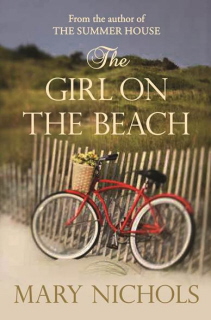- Farewell
- Introduction
- All Mary's Books
- Coming Soon
- More about Mary Nichols
- Links
- Search
- Contact Me
- Acknowledgments
- Blogs
- Most recent blogs
- Archive
- 2014
- 2013
- Building family anecdotes into a novel
- Collective Noun for a group of Romantic Novelists
- Village Brickmaking
- Writing Historical Novels for Mills & Boon
- Plot and Character in Historical novels
- Norfolk roots
- Developing that first Idea
- A Weekend to Remember
- Writing and Selling historical novels
- Using the Second World War as a setting
- What makes a good novel
- Doing the Research
- Spring in the Garden
- Historical novels: getting the setting right
- Writing Novels set against an historical background
- Mothers' Day
- Romantic Novelists' Association Annual Awards
- Shortlisted
- Do you need to be a historian to write historical novels
- 2012
Using the Second World War as a setting
Tue, 04/06/2013 - 10:24 — Mary
This is the fifth of my blogs for the Australian literary review: http://www.writinghistoricalnovels.com/
 It always amazes me that the Second World War is considered history in the novel-writing sense because I am old enough to remember it, albeit through young, but impressionable eyes. I remember the blackout and the blitz, the rationing and shortages, the long queues and the black market and almost everyone in a uniform of one kind or another; army, navy, air force, police, Home Guard, Civil Defence, Women’s Voluntary Service, nurses, Boys’ Brigade, Boy Scouts, Girl Guides, all had their part to play.
It always amazes me that the Second World War is considered history in the novel-writing sense because I am old enough to remember it, albeit through young, but impressionable eyes. I remember the blackout and the blitz, the rationing and shortages, the long queues and the black market and almost everyone in a uniform of one kind or another; army, navy, air force, police, Home Guard, Civil Defence, Women’s Voluntary Service, nurses, Boys’ Brigade, Boy Scouts, Girl Guides, all had their part to play.
Private cars were not allowed to have petrol so you saw few of them. Shanks’ pony or a bicycle was the norm for getting to school or work, and the pony and trap came back into its own for local trips. Long journeys were almost always taken by train, which was often held up by air raids or having to go into a siding while an ammunition train was rushed through. There were no signposts on roads or names at railway stations; if you weren’t familiar with the route, you had to rely on the porter or other passengers to tell you when you had reached your destination.
London’s cityscape (and that of many other cities), changed day by day, as buildings and whole streets were destroyed. You were as likely to find yourself tripping over a hose snaking across the road or crunching broken glass underfoot as find a shop advertising ‘business as usual’ on its boarded up windows. I can’t hear the sound of a siren now without being hurled back into the past and feeling like a child again; it makes my heart beat uncomfortably fast. It was a time of great upheaval, not only of danger and hardship which was considerable, but changes in the way people lived, especially the women, who suddenly found themselves having to cope without their menfolk and coping unbelievably well. You learned to do jobs you never expected to have to do, you learned make food go a long way, to ‘make do and mend’, never to waste anything. It is a habit that those of us who lived through it can never break ourselves of. When it was all over, nothing would be ever be the same again.
It is a wonderfully fertile ground for novels. In the years immediately following it, people didn’t want to be reminded of it, they were more concerned with building a new world and that was never going to be easy, but before long books, true and fictional, started to come out and many of them have enjoyed a second life as films. Recently there has been a revival, not so much of the actual conflict, but stories of how people lived and coped.
If one of your characters is in London during an air raid it is as well to know which nights were particularly bad and where the damage was concentrated. And if someone is torpedoed, it is a good idea to know which ship they were on and the date she sank. If a soldier was lost in a particular battle then you need to know the date and circumstances even if you don’t write about the battle itself.
Writing about it has been no hardship for me, but that doesn’t mean I didn’t have to do any research; it is all too easy to get dates and the sequence of events wrong if you have to rely on memory. Memory plays tricks. Distances seemed longer then than now, possibly because we walked everywhere or rode bicycles. Working class people didn’t have telephones, not even my grandmother, who was a midwife and often called out in the middle of the night, (Usually the agitated father-to-be would throw a handful of grit at her bedroom window to rouse her.) so it would be wrong to have a labourer or a factory worker pick up a telephone to pass on some news. You need to know how long it would take for news to circulate, especially if it is something the BBC would not broadcast. Details like this need to be borne in mind when writing of the time. Or any time, come to that.
My books with a WW2 setting are: The Summer House, The Kirilov Star, The Girl on the Beach and Escape by Moonlight.
See www.marynichols.co.uk or www.allisonandbusby.com for more details
